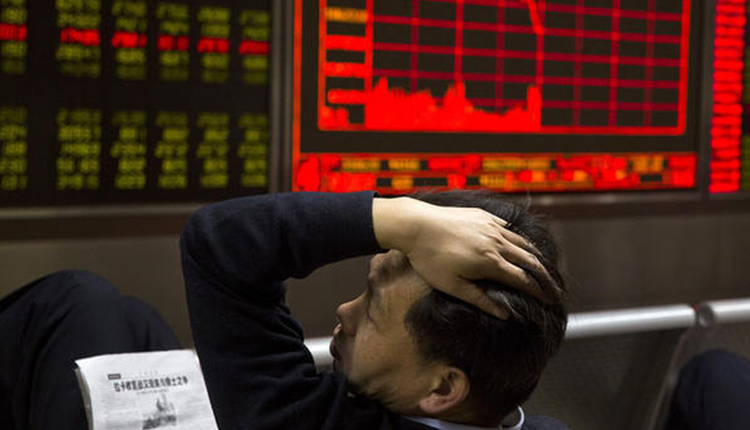Asian markets fell across the board in afternoon trade on Tuesday as investors remained cautious amid rising global tensions.
The Greater China markets were in negative territory after seeing strong gains over the last two sessions. Hong Kong’s Hang Seng index fell 2.03 percent while the Shanghai composite shed 1.37 percent and the Shenzhen composite declined by 1.229 percent.
“Yesterday’s 4.1 percent rally in the Shanghai Composite Index is likely to have been a dead cat bounce,” strategists at DBS Group Research said in a morning note. “Any stimulus by China should be viewed not as a boost but as a cushion against a slowing economy against external headwinds.”
Over in South Korea, the Kospi was down 2.48 percent in the afternoon, touching lows not seen since March 2017.
In Japan, the Nikkei 225 was down 2.44 percent while the Topix index fell 2.36 percent.
One investor suggested that the time is not ripe to re-enter Asian markets.
“In the short term, we believe that the U.S. dollar is still a bit too strong and also, interest rates in the U.S. are likely to continue to rise and also, the trade tensions at the moment are still a little bit too high,” Khiem Do, head of Asian multi-asset at Barings, told CNBC’s “Squawk Box” on Tuesday.
“I think that we need to see those three catalysts actually improving somewhat for us to re-enter into… the markets,” he said.
Australia’s ASX 200 was down 0.91 percent with the heavily-weighted financial sector falling 0.97 percent and the energy subindex lower by 3.05 percent.
Shares of hospital operator Healthscope jumped 19.89 percent Down Under after the company said it had received a takeover proposal from a consortium for 4.11 billion Australian dollars ($2.9 billion), according to Reuters.
Rising geopolitical tensions
Overnight on Wall Street, the Dow Jones Industrial Average declined by 126.93 points to close at 25,317.41, while the S&P 500 slid by 0.4 percent to end at 2,755.88. The Nasdaq Composite advanced by 0.3 percent to close at 7,468.36.
Investors remain cautious over mounting geopolitical tensions around the world.
A Saudi official provided this weekend a new account of the death of journalist Jamal Khashoggi, deviating from a prior official statement from Saudi Arabia. Khashoggi’s death has led to global criticism toward Saudi Arabia and has sent ripple effects throughout global markets. Last week, foreign investors reportedly dumped more than $1 billion worth of Saudi stocks.
Meanwhile, the U.S.-China trade war remain a focus for markets. A Chinese official told American investors at a meeting that Beijing did not “fear” a trade war with Washington.
“China never wants a trade war with anybody, not to mention the U.S., who has been a long term strategic partner, but we also do not fear such a war,” Zhang Qingli, a leading member of a Chinese committee tasked with forging alliances with other nations, said through a translator at the meeting in Beijing. That was according to a meeting attendee who declined to be named.
Currencies and oil
The U.S. dollar index, which tracks the greenback against a basket of its peers, was at 96.07 in the afternoon, after rallying from the 95.5 handle yesterday.
The Japanese yen traded at 112.53 against the dollar after weakening from levels below 112.4 in the previous session. The Australian dollar was at $0.7059, sliding from levels above $0.711 yesterday.
Oil prices gave up early gains on Tuesday afternoon during Asian hours. Global benchmark Brent fell 0.38 percent to $79.53 per barrel while U.S. crude futures were lower by 0.27 percent at $69.17.
Source: CNBC
